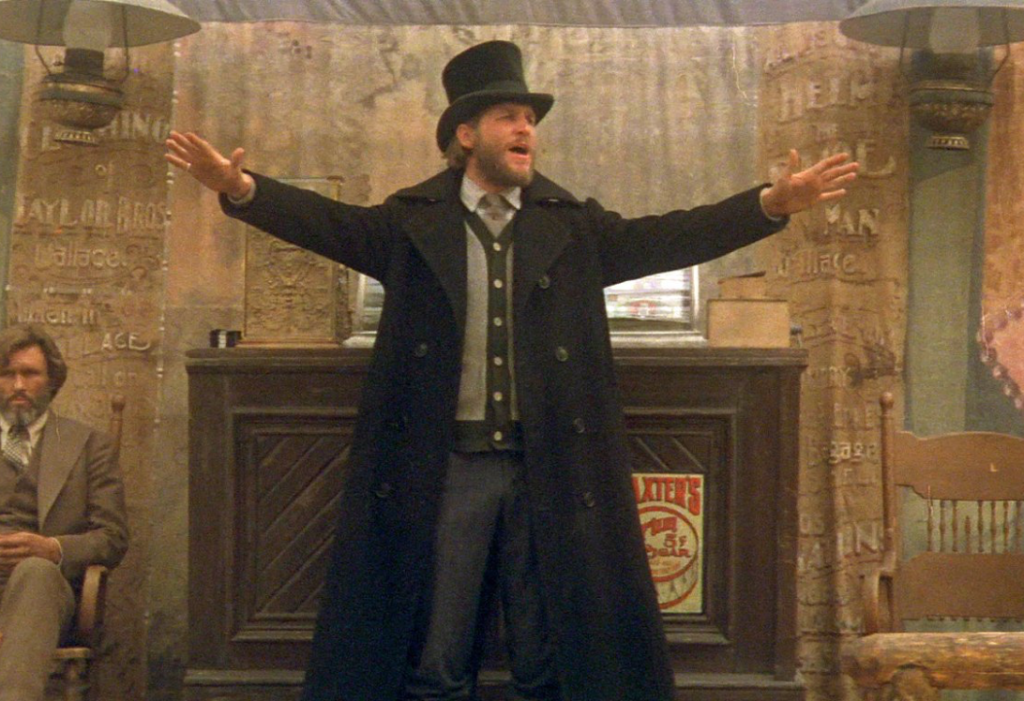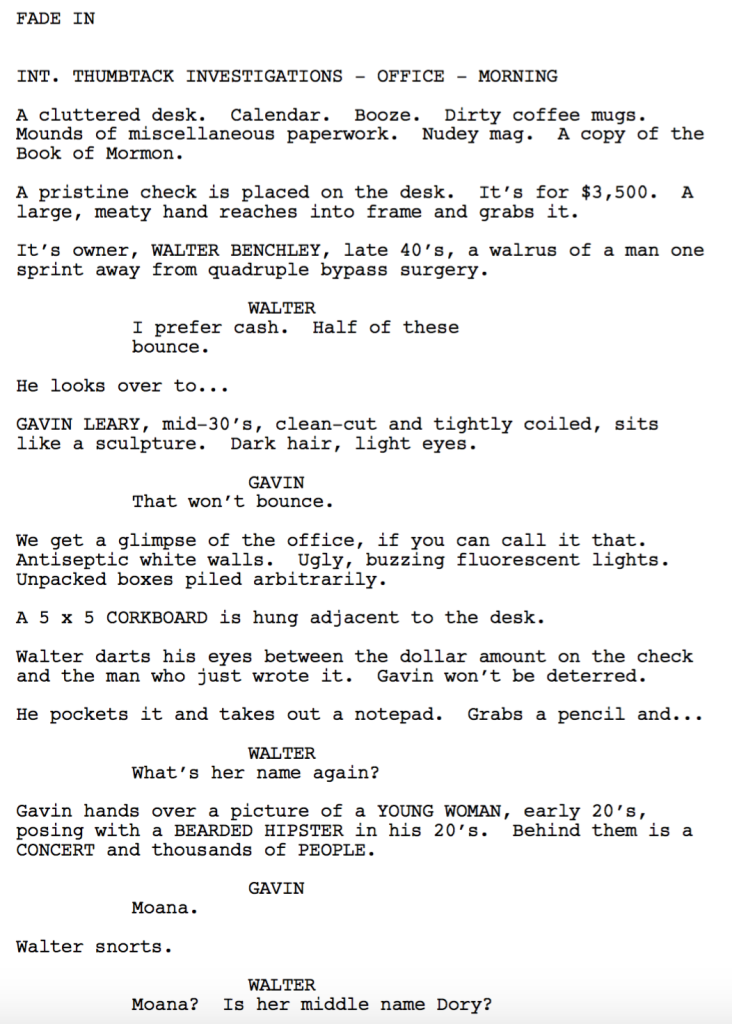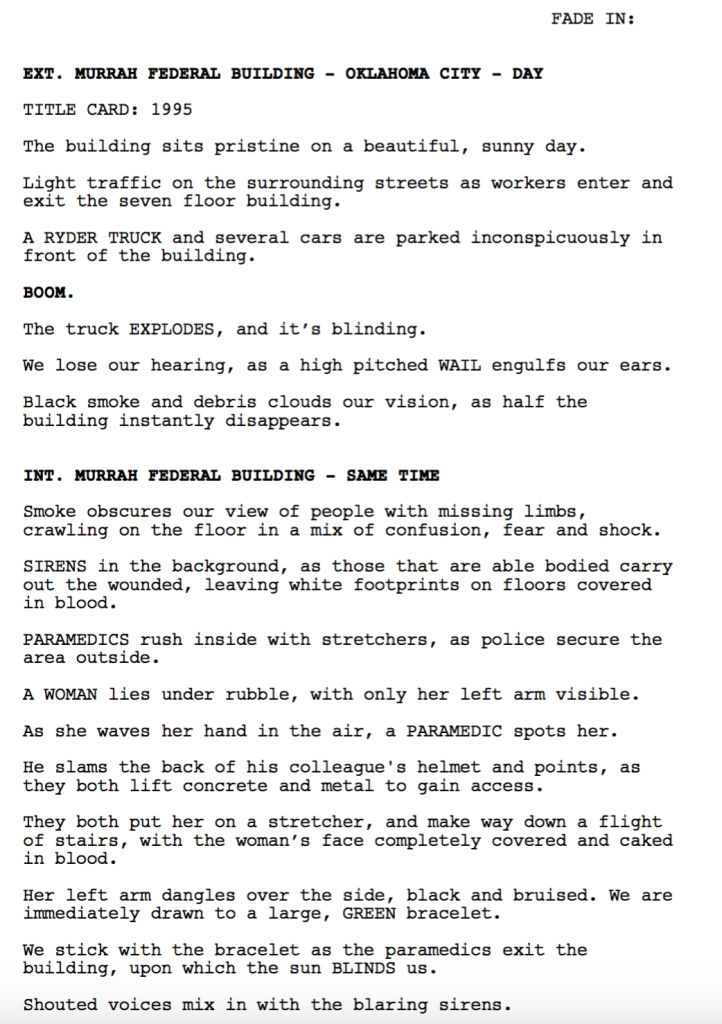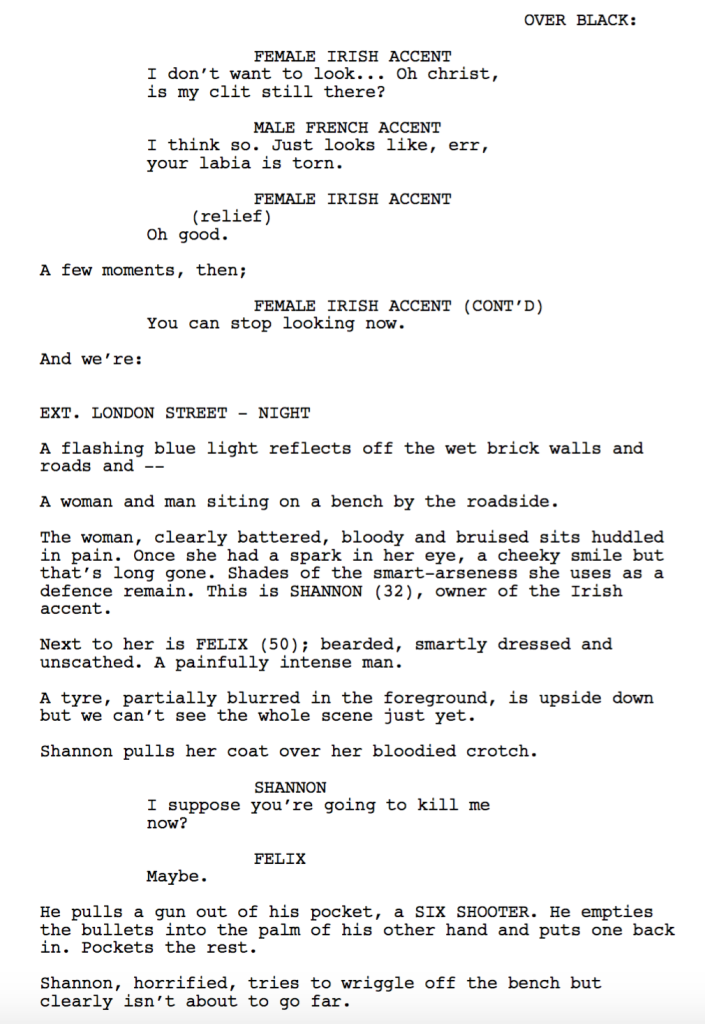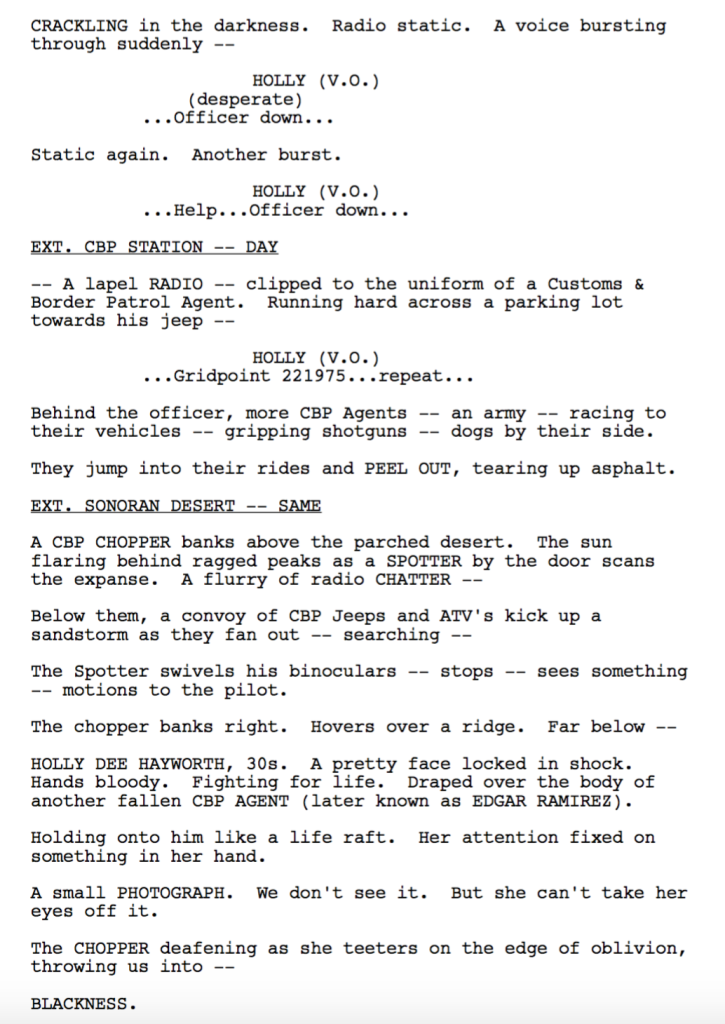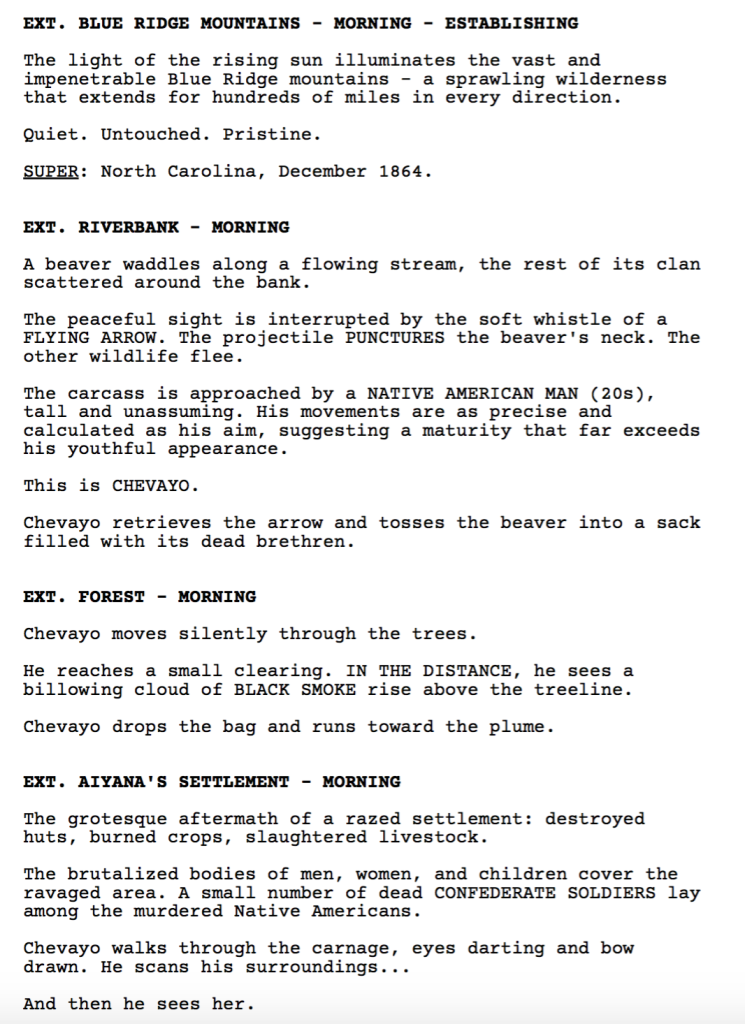The movie that was so bad, it took down a studio, and gave birth, for better or worse, to modern blockbuster culture.
Genre: Western/Drama
Premise: A sheriff attempts to protect immigrant farmers from rich cattle interests during one of the blackest marks on America’s history, the Johnson Country War.
About: Michael Cimino had just come off winning best picture and best director for his 1978 film, The Deer Hunter. He was the hottest director in Hollywood. Little did he know he was about to direct a film that would not only destroy his career, but bankrupt the studio producing the film, United Artists. The 1980 film cost 44 million dollars to make (130 million in today’s dollars), which was an unheard of amount of money to make a film at the time (for comparison’s sake, 1977’s Star Wars cost just 11 million). The film would go on to gross less than 4 million at the box office. Cimino would earn the reputation of being an obsessive director, routinely demanding as many as 50 takes per shot. To this day, many consider Heaven’s Gate to be the biggest box office bomb in history.
Writer: Michael Cimino
Details: 132 pages (undated)
Heaven’s Gate is one of the most fascinating behind-the-scenes stories about a movie ever. In addition to everything you just read, Heaven’s Gate put the nail in the coffin of the auteur-driven film, allowing for the blockbuster-driven industry we know today to emerge. You might even say that Avengers Infinity War wouldn’t be coming out this weekend had Michel Cimino never directed this film.
Here’s the funny thing: I’ve never seen Heaven’s Gate. I’d heard stories about it. I’d read about it. But because I’d heard the film was so bad, I could never get myself to check it out. With Heaven’s Gate’s failure being blamed almost entirely on its production, I thought this would be the perfect opportunity to read the script and see if this movie was doomed even before the cameras started rolling. It should make for an interesting exercise. Let’s take a look.
The year is 1891. The place? Johnson County, Wyoming, where 40 year old James Averill has just become sheriff. Johnson County is experiencing all sorts of upheaval. It’s been inundated with immigrants, many of whom are unskilled and can’t find jobs. As a result, they’re all starving. And because they’re starving, they’ve taken to stealing cattle from surrounding farmlands to survive.
The Wyoming Stock Growers Association, the richest association of its kind in the world, has had enough of this. Despite countless attempts to jail these felons, the weak court system has made it impossible. So they take matters into their own hands by putting together a list of over 100 immigrants in Johnson County known to have stolen cattle, and have gotten permission from the governor to kill them.
Averill is shocked. But he’s got bigger problems. The love of his life, a young beautiful prostitute named Ella, is an immigrant as well as on the list. She’s been trading sex for meat from the stolen cattle.
Then there’s Nate Champion. Champion is an immigrant himself who’s been hired by the Wyoming Stock Growers Association, and has already killed several of his fellow immigrants for the company. Champion is also in love with Ella. She doesn’t like him as much as Averill, but at least he’s always around, something Averill can’t claim.
One day Averill shows up with a car, tells Ella that the WSGA is coming, and that if she knows what’s good for her, she’ll drive as far away from here as possible. When it’s clear he means just her and not them together, she’s furious, and decides to stay. As D-Day looms for the offending immigrants, Ella, Averill, and Champion must all decide what it is they really want, and if they’re willing to risk their lives for it.
Well highty-ho.
If we’re ONLY going by the script, here, I didn’t think this was that bad.
I was expecting something abysmal. But the seeds of a good movie are definitely here.
The trick with writing a good script is getting two things right.
A strong central conflict to drive the narrative.
A strong personal conflict to drive the character journeys.
Heaven’s Gate has both. On the plot side, we have this mass assassination looming. We know all these people are going to be killed. We know that a big showdown is coming. Any script would be happy to have those kinds of stakes.
On the personal side, we have this clever love triangle that’s really well conceived. The sheriff is in love with one of the immigrants who’s going to be assassinated. That same woman is also in a relationship with one of the men tasked with killing the immigrants (unknowingly). And in the ultimate display of irony, he’s an immigrant himself!
Screenwriters work very hard to come up with setups like this. There are a lot of layers going on inside an exciting setup with high stakes.
So what went wrong?
Well, a few things. We find out about the looming mass-assassination plan at the beginning of this two hour movie. Yet it doesn’t happen until the very end. That’s a long time to make an audience wait. And what can sometimes happen if you make people wait that long is they simply lose interest. Deciding when to introduce plot points is crucial in sustaining interest and I probably would’ve had this revelation show up later in the story, somewhere between pages 45-60.
Also – and this may have been a result of that mistake – Averill doesn’t do a whole lot when he learns of this information. He finds out at the same time we do, and his solution is to wander back to Johnson County, play with Ella for a little bit, bounce around town, and only THEN, halfway into the story, tell the town that the WSGA is coming to kill them.
I feel like if I had that information, I’d run back home immediately and start solving the problem. If your Hero Sheriff isn’t active in the face of 100+ of his people about to be killed, what kind of hero is he? I mean if he had a reason to keep the information to himself, that’d be fine. But he seems to keep it to himself merely because he’s lazy or the writer needs him to. I needed way more from Averill. But outside of a few intense scenes where he tells Ella she should leave town, he doesn’t do much.
On the personal front, it’s more complicated. They had this great setup where two men loved the same woman and she’s going to be killed and one of them is part of the group that’s doing the killing and she liked the other more than him but he won’t commit. That’s a mighty powerful stick of dynamite there. And yet they never lit the wick.
You kept waiting for the situation to explode but Cimino instead opted for a lot of tiny cuts and nicks, attempting to bleed the situation out. For example, when Ella finds out that Champion is working for the WSGA, she gets really mad at him in the scene, but, going forward, it doesn’t bother her that much.
And Averill was so damn wishy-washy about whether he liked Ella or not and Champion was so strangely unbothered that Ella was with Averill that the whole love triangle thing petered out before it even got started.
It’s like they came up with the killer concept of a Rubik’s Cube, but weren’t sure how to manipulate it so that all the colors appeared on their proper sides.
Also, the script is extremely overwritten, even for a writer-director. There would be passages of 19-20 lines where not a single relevant action was given. What I mean by that is there would be 20 irrelevant lines describing the town square and the trees and the wind, as opposed to one relevant line like, “Averill steps up to Champion, sizing him up,” – you know? Something that creates drama, conflict, entertainment, or excitement.
And, honestly, I think that hurt the movie. You can see that Cimino’s so obsessed with the visuals and the feel of the film that he’s forgotten what’s most important – the story. This is a movie. Shit needs to happen onscreen. Frequently. You start violating that rule enough and the audience checks out.
Assuming this draft is similar to the final film, I still don’t have any interest in seeing it. If Cimino had been a little more economical – just a little – and told a tighter story, that may have changed. But this feels more like an excuse to sweep the technical categories at the Oscars than it does making a movie that mass audiences would enjoy.
Script Link: Heaven’s Gate
[ ] What the hell did I just read?
[x] wasn’t for me
[ ] worth the read
[ ] impressive
[ ] genius
What I learned: Sustaining a single looming plot thread for an entire movie is hard to do. It can be done in really funny or action packed movies like Raiders of the Lost Ark or Superbad. But it’s much tougher in slower films. For that reason, consider revealing the main plot thread a little further down the line. And that would’ve worked great here. If, on page 45, Averill stumbled into the revelation that a hundred immigrants were going to be killed while investigating a murder, you gain the in-the-moment excitement from that revelation PLUS you only have to sustain suspense for 60 pages as opposed to 90.
We’re so close to Avengers Infinity War I can taste it like I can taste a ripe tomato on a freshly fried In and Out burger. I can feel it within my talons – the biggest superhero movie ever made. Yet I have to wait an entire week to sample the goods!? What country do I live in! Syria!? I have no doubt life hates me. And on top of that you casually drop the news that the Kardashians have closed all their Dash stores?? Where is a fashion-conscious person supposed to shop dammit!!! It’s like I’m literally watching Armageddon rain down around me.
Which is why I’m so so happy to interrupt this awful news with… (shouting from the rooftops voice) “AAAMMMMMATEEEEEUR OFFFERRRRINGS!” It’s the place where you, the mild-mannered screenwriter, the little guy with a big idea, can be featured in a one-weekend battle royale style tournament, and IF YOU WIN, you get a review on the site next Friday. What could that review lead to? Try money. Fame. Hundreds of adoring Twitter fans. I call that the sweetest deal on the internet.
Don’t be shy folks. If you believe you have a screenplay that is reverse-Armageddon worthy, submit it for a future Amateur Offerings! Send me a PDF of your script, along with the title, genre, logline, and why you think people should read it (your chance to pitch your story). All submissions should be sent to Carsonreeves3@gmail.com.
Rules of amateur offerings: Read as much as you can from each script and vote for your favorite in the comments!
Title: Messiah Complex
Genre: Crime/Thriller
Logline: A Salt Lake City P.I. is put directly in the crosshairs of a deranged cult when he’s hired to find the sister of an ambitious public official.
Why You Should Read: I’ve been sending this one out to contests after it got decent coverage. Eager to see what the scriptshadow community thinks. If you like neo-noir, mystery, dark humor, cults, etc., you’ll enjoy this incredibly twisted rabbit hole. Hard-boiled, quirky, and even shocking.
Title: Murder In Grave
Genre: Thriller
Logline: Facing the prospect of permanently losing her hearing, a music teacher gets an artificially intelligent cochlear implant that convinces her to commit mass murder.
Why Should You Read? What would you do if the only thing that gave you meaning in this world was to be taken away forever? — If there was an experimental procedure, with untold risks, that could prevent that scenario, would you undertake it? — Murder In Grave is a slow burn thriller, that has been crafted with the sole purpose of emotionally strangling the main character from page one until fade out. A hurdles race where the obstacles get higher and faster the further you go on. — Naturally, as the stakes increase, something always has to give.
Title: Bet Your Life
Genre: Dark Comedy
Logline: A suicidal gambling addict is drawn into a plot to rob the betting office she used to own.
Extended logline: … But between her dysfunctional support group friends, an ex-fiance who doesn’t want her back, a magpie that won’t leave her alone and a dice-wielding, luck-obsessed psychopath, it appears that Lady Luck may have other plans for her life.
Why You Should Read: This is that script that I’ve never been able to cut my losses on (ironic and topical). And recently, after a creative buzz, I tore off my shackles, leaned into my weirds and killed a few babies (in screenwriting terms only, I’ve only killed one baby* in real life, and that was an “accident” – we’ve all been there, an annoying baby screaming in his pram, the top of a grand staircase and Leslie Nielsen nowhere in sight and whoops an “accidental” passing nudge). Anyway, I digress….
This script is very In Bruges-y in tone, part comedy, part drama but with female central characters. It draws heavily on themes of luck and addiction with some serious scientific examination thrown in for good measure… That being how high up you’d need to be to guarantee instant death if you threw yourself from a building. Important stuff. — As for me, I’ve been writing (in my spare time) for nearly ten years. I have a receipt from a UK University saying this is more than a just a hobby so I hope to tickle your fancy, your balls and/or your boobs (yes, potentially both. Inclusive, so…) and invite you to indulge in my script.
*That baby was really ugly. And he had the look of a baby who would grow up to kill babies.
Title: Sentinel
Genre: Sci-Fi Thriller
Logline: After the U.S. government unleashes a terrifying secret weapon to hunt down illegal border-crossers, a female border agent is forced to work with a vicious cartel gangster to ferry a young migrant to safety.
Why You Should Read: Sentinel was a semifinalist at the 2012 Nicholls and came in 2nd place in the sci-fi/action category at the PAGE Awards. This script landed me a manager and was sent around Hollywood. (The logline was actually selected by Scriptshadow in a Top 100 loglines contest–it was called Coyote back then). — Sentinel received a lot of great responses from agents and producers but back in 2012-13 the general consensus was that illegal immigration was not a saleable concept. Well fast forward to 2018 and Trump is building a wall and movies like “Get Out” and “A Quiet Place” are proving that tough topics and sci-fi monster stories are alive and kicking. — Sentinel is a tight, relentless thriller that tackles racism, illegal immigration, and redemption in a bold new way. I think Scriptshadow readers will really enjoy it.
Title: Skin and Sinew
Genre: Historical Thriller
Logline: When a Confederate raid on his small Native American tribe results in the death of his Queen and people, an ancient creature with the ability to assume any human form embarks on a mission to hunt down the general responsible for the massacre.
Why You Should Read: If I were to play the comparison game and elevator-pitch my movie, I’d say it’s “Under the Skin” meets “The Revenant.” Set during the closing years of the American Civil War, “Skin and Sinew” is brutal, violent and grim; a down-and-dirty B-movie revenge story not unlike the classed-up exploitation flicks that S. Craig Zahler has excelled in. If you’re looking for a head-smashing, bone-crunching good time, give this bad boy a shot. Many thanks to anyone willing to check it out; I look forward to reading what the community (and, God willing, Carson) has to say about it!

Last week, a commenter brought up a concern that I hear a lot from screenwriters. He was upset that A Quiet Place did so well at the box office when it so clearly cheated its way through its second half.
For starters, a noise-making machine (a newborn baby) was thrown into the mix with zero consequence. Also, there was no reason to go save the kids at the end. They’d been trained to deal with this situation and knew what to do. Or someone brought up (spoiler) that the dad sacrifices himself by screaming when he could’ve easily hurled his axe at the nearby tool shed, which would’ve made just as much noise, and gotten all three family members out of there safely.
The writer was making the argument that Hollywood allows professional writers way more rope than amateurs. Huge gaps in logic are overlooked if you’ve got an IMDB page. Whereas if you’re an amateur, you get points docked if your slugline isn’t formatted properly. I’m sure all of you have felt this way at one point or another: “Why do they get to get away with it but I don’t?”
Before I answer that, I want to say that this is a terrible attitude to have in general. You’re playing the victim. And when you play the victim, you subconsciously build a narrative where success is unlikely. You’ve convinced yourself that an evil system is keeping you down. And therefore, you will do your best to live up to that scenario. So my first piece of advice would be to NEVER blame anyone for your lack of success other than yourself. If it’s all you, that means you have the power to fix the problem and change your circumstances. If it’s all on the system, there’s nothing you can do so you might as well quit.
Now, I can unequivocally say that nobody in Hollywood is personally targeting you. Nobody says, “Oh, they’re just Amateur Screenwriter X. Therefore, nothing they ever write is good enough.” Hollywood doesn’t care about who you are. All they care about is making money or winning awards. That’s it. If your script can bring them one of those two things, you could be the homeless man who stands outside my supermarket every morning asking me if I want to join him on a trip to Neptune and they will still buy your screenplay.
As for the technical answer to your question, I want you to write down this mathematical formula: Scripts are graded on the INVERSE RELATIONSHIP between the quality of the concept and the quality of the execution. What that means is that the less impressive a concept is, the more impressive the execution needs to be.
So if you’re not getting good reactions, you’re probably failing in one of those two areas. In other words, your “A Quiet Place” equivalent concept didn’t sink because readers are judging your mistakes more harshly than they do professionals. It sunk because your concept was inferior to A Quiet Place, and therefore your execution (plot holes and such) was being graded more harshly.
This leads us into a larger conversation about concept. Concept, while not as big as it used to be, is still king in the spec world. I’m not talking about the adaptation world, where writers are getting paid before they write the script. I’m talking about the spec world, where the idea alone must stand out enough to get the attention of people with money to spend. And this is where things get a little confusing. If a concept is super-awesome – there’s something clearly special about it – that is the one time a producer will abandon their concern about subpar execution and take a chance on the material, as they believe they’ll be able to hire their writers to fix it.
This is why, sometimes, you’ll read a script with a big flashy concept that’s poorly executed and wonder why someone bought it. It’s because a producer loved the idea, knew they could market it, and figured they’d fix the script problems along the way. These are the sales that confuse aspiring screenwriters the most because they can’t understand how a script that’s so poorly executed sold. Well, now you know.
But getting back to what we can control, if your script isn’t clicking with people, either the concept is lame or the execution is bad. And if you want to know which of these two is more important, it’s the concept. That’s because you don’t need to nail the execution to get people in the theater on that critical first weekend.
Now, let’s assume that your concept is decent but not great. This means you have to nail your execution to have a shot. But what does “execution” mean? That’s a pretty broad term. Execution includes everything from plot to theme to dialogue to structure. However, the number 1 thing producers and agents are talking about when they mention “execution” is the characters and the relationships.
Do we feel something for these people? That’s the big one. Because if we do, that acts as a deodorant for plot and logic holes. Keep in mind that while we assess screenwriting daily here, the average audience member has no idea how screenplays work. All they know is how the script makes them feel. And if they feel positively towards the characters, they won’t notice plot holes as much.
Nowhere is this more evident than in A Quiet Place. The writers and Krasinski made us fall in love with that family early on using a combination of intense loss (losing their son) and intense conflict (how that loss has driven a wedge between key members of the family).
We’ve gone through such a range of emotions by the end of that movie that unless you’re a screenwriting geek who visits Scriptshadow, you don’t consider the fact that the dad could’ve thrown the axe at the shed and stayed alive in the process. All you’re thinking is, “How is everyone going to make it out of this okay?” And that’s what your job is as a screenwriter. It isn’t to create the PERFECT illusion. That’s not possible. It’s to create just enough of an illusion that the audience buys into the moment. And nailing the characters is the secret to covering up plot and logic holes.
So don’t whine. Don’t blame others. Don’t be a victim. If you want to sell a script, control what you can control. Get better at concept creation. Get better at character development. And get better at relationship development. If you get those three things right, you don’t have to be perfect with the other stuff. That doesn’t mean you shouldn’t try. I’m not advocating writing a sloppy script. But if you can get those three things right, that’s what’s most important. Good luck and happy writing!
Genre: Contained Thriller/Drama + Mystery Genre
Premise: (from Black List) A seemingly progressive suburban husband and wife renting their garage through AirBnB become suspicious of their Muslim guests. As they investigate their visitors, they unwittingly trigger events that will forever change the course of human history.
About: This script finished on last year’s Black List with 8 votes. The co-writers, Travis Betz and Kevin Hamedani, have both written and directed their own work. However it’s mostly low-budget stuff you haven’t heard of before.
Writers: Travis Betz & Kevin Hamedani
Details: 113 pages
When you get to the bottom of the Black List, you start encountering some dicey material. I mean, there is actually a script called, “Jihotties.” Want to know what it’s about? Okay, I’ll tell you. It’s about two women who catfish ISIS to “fund their startup” but get “more than they bargained for” when they’re recruited by the CIA as spies. Yeah, I don’t see myself reading that one anytime soon.
It’s always a risk when you get to the bottom of the barrel. But The Saviors sounded like it maybe possibly wasn’t bad.
Sean and Kim Harrison (a mixed couple, him white, her black) may still be living under the same roof. But their marriage is over. It’s gotten so ugly that every night Sean goes to sleep, he has weird nightmares of his wife divorcing him then walking outside into a desert wasteland.
A big problem is that Sean doesn’t have a job. That financial stress has widened cracks that already existed in the relationship. Luckily, he has a temporary idea. Turn the garage into an AirBnB!
This leads to their first tenants, Jahan and Amir Razi, muslim siblings who need a place to stay for 10 days while the house they’re moving into is being cleaned. Amir seems like a totally cool guy whereas Jahan is deaf and therefore stays in the background.
Right away, things get weird. Late at night a loud rumbling comes from the garage followed by a giant flash of blue light. This makes Sean curious, and because he doesn’t have anything else to do during the day, he does his best impression of Jimmy Stewart and starts watching the Razis.
Later, he accidentally opens up a package sent to Amir (he thought it was his) and finds blueprints to something. With the Vice-President doing a high-profile deal in the Seattle Space Needle next week, Sean becomes convinced that these AirB&B’ers are actually AirB&T’ers. As in T stands for Terrorists!
When he comes to Kim with his findings, she’s furious with him. She’s spent much of her life being discriminated against because of the color of her skin. She’s not going to do the same to other people.
But when Sean brings Kim evidence that the two lied about their future home, Kim starts to come around. The act of teaming up even puts a spark back into their marriage. But as the Razis start acting weirder and weirder, the two begin to wonder if this is a terrorist act or… god forbid… something worse.
I liked how this script started out, particularly after yesterday’s stinker, which took ages for anything to happen. This script is written more traditionally, with Jahan and Amir acting strange from the drop. Which means we’re pretty much hooked by page 10.
And I loved the choice to make this a broken marriage. If Sean and Kim had a perfect marriage, there’s no conflict in their interactions, and there’s no subtext either. That last one’s an advanced tip for you aspiring screenwriters. Because Sean and Kim have a broken marriage, when Sean brings to Kim his suspicions about the tenants, it’s not just some surface level disagreement. Each argument contains within it an unspoken argument about their marriage. That makes their conversations way more interesting.
There’s also POPULATION going on here. Populating your script is the act of adding subplots or extra characters or detail that FILLS UP YOUR SCRIPT. Yesterday’s script was the anti-population script. Absolutely NOTHING was going on other than advertised (the house being haunted), leaving the story feeling incredibly thin.
These two are getting divorced, which means they’re selling the house. The problem is, the basement ceiling has major water damage. Which means they need a quote. And once they get the quote, they find out it’s too much. And now they need to find a solution. So Sean is always consumed by that problem. It seems minor, but populating your script with these extra elements is what makes it feel like a FULLY REALIZED movie, and not just a one-sentence idea that’s been padded to death.
Everything was going so well on my Saviors flight that I didn’t even consider we might hit turbulence.
And then we hit turbulence.
The script started to get goofy. For example, Kim, who’s frustrated that Sean is acting so racist, decides to go to a bar to blow off steam. When she gets there, she sees that Amir is also there, in the corner! But not only that, he’s stolen and is reading her diary!
I’m sorry but diary-reading twists should not be present in a movie about terrorism. Save that one for the next Parent Trap remake.
Then, when Kim gets hard evidence that the people renting their garage are terrorists who are going to blow up the Seattle Needle, she reacts by excitedly telling her husband, “We should order pizza.”
The thing with this script is that it’s trying to comment on something very serious. Racism. Prejudice. Stereotyping. But it never stays sophisticated enough to make you believe it’s worthy of exploring those topics. If I find out that my neighbors are terrorists, I don’t order pizza.
I mean, well, maybe if I still lived in Chicago I would. But that’s besides the point.
You can’t really discuss this script in whole without discussing the ending. Unfortunately, the ending is a huge spoiler and I don’t want to put in the review. I will say that it’s a surprise. And it manages to add a lot to the themes explored in the film.
I’m just not sure it all comes together. It feels very, uh, forced. In other words, when it comes, you can feel the writers writing it. But hey, maybe it will fool people who haven’t read thousands of scripts before.
If you have a couple of hours to waste or you want to see how to update a classic idea (Rear Window), you could do worse. But things got too goofy for me to officially endorse this.
[ ] What the hell did I just read?
[x] wasn’t for me
[ ] worth the read
[ ] impressive
[ ] genius
What I learned: It’s always more interesting in a two-hander mystery if the two characters disagree. It allows for conflict, which makes their scenes more entertaining. But it also allows the writer to play both sides of the fence, and by doing so, keep the reader off-balance. In other words, Sean can make a great point and we think, “Yes, they’re definitely terrorists.” But then Kim can make a point and it’s like, “Oh yeah, maybe she’s right.” If both characters are on the same page, you don’t get that.
What I learned 2: When presented with a situation where it doesn’t make sense why your characters wouldn’t just go to the cops, you can use this cheap trick. You have them go to the cops, but the cops are so busy, and the evidence is so weak, that they shrug you off. So that’s what happens here. When they think the Razis are terrorists for sure, they go to the FBI, and the FBI is like, “Right, so they light up the garage sometimes and they stole your diary. Come back to us when you have some real info.” I don’t love this solution, but it’s better than the characters not going to the cops (or in this case the FBI) at all.
Genre: Drama-Horror
Premise: A married pair of Sudanese refugees are granted a temporary stay in the UK that can become permanent if they can only avoid trouble, a task that becomes problematic when they move into a haunted house.
About: This project was held up for awhile due to a snafu with The Weinstein Company. But since there is no Weinstein Company anymore, they can finally make their film! Remi Weekes is a first time writer-director who’s made some noise around the UK with a couple of short films. This script made the Blood List last year.
Writer: Remi Weekes
Details: 93 pages

This one came recommended from a couple of sources so I was eager to check it out. I like scripts – especially genre scripts – that are able to take me to places I’ve never been before. This story about Sudanese refugees stuck in a haunted house felt refreshingly original. So all the arrows were pointing up on this one. Let’s find out if those arrows didn’t die of a heart attack due to a Scriptshadow jump scare.
When we meet Sudanese married couple Bol and Zainab, both 28, they’re sleeping in a detention center with hundreds of other refugees, all from different countries. The couple has escaped unimaginable horror in their home-country, Sudan, where villagers were being hacked to pieces on a daily basis.
The two win the equivalent of the lottery when they’re chosen for a six-month program to live in the UK. It’s made clear to them that they are not citizens until they finish the program without causing any trouble. They’re ecstatic. Being good for 6 months? A piece of cake.
The two are moved into a house in a blue-collar neighborhood and while the neighbors don’t seem very friendly, they feel lucky to have a home. And everything goes well for awhile. That is until Zainab starts seeing something around the house. A… creature. A creature that lives in the walls.
At first, Bol tells Zainab to tough it out. She can’t be going crazy on him. They could lose the house and get sent back to the hostels. But the truth is, Bol has begun seeing the creature as well. He keeps telling himself it’s a part of his imagination but deep down he knows it’s not.
During this time, we learn that the couple lost a daughter on the journey out of Sudan. The loss haunts Zainab. But Bol is over it. And he wants his wife to get over it too. It doesn’t take a rocket scientist to link the creature living in the house with their lost daughter. The two are obviously connected. But if you dare think you know what the creature wants, guess again.
His House is the kind of script you get when you have a writer-director who’s better at the directing side than the writing side. Clearly, Weekes has a vision for this film, some of which he charts specifically in the script, as he tells you exactly where the camera will be placed and how it moves.
We also get plenty of amazing visuals here, such as Bol walking across the ocean in a dream, and then when we pan up and look down to see that the ocean is filled with billions of dead bodies to signify his countryman lost in the war.
But when it comes to the writing, there are a lot of problems with His House, the biggest of which is that very little happens. That’s because the story is thinner than a Blumhouse budget breakdown. And a lot of basic screenwriting mistakes are made.
For example, the characters have nothing to do. They just hang around the house waiting for the writer to come up with the next scary scene for them to participate in. Occasionally, Bol will leave for the day, but we have no idea where he goes. In any script, you want your characters to be active. You want them doing things, affecting the outside world. Both of these characters are passive and it makes for a very bland experience.
The dialogue is frustrating. There are no conversations in this script. Only conversation fragments. If two people speak, it’s for less than 30 seconds. And when characters do speak, they often use as few words as possible. “What is this?” “It’s the best I can do.” “This is wonderful.” “Wonderful.” “But maybe next time we can use the table.”
The reason this is problematic is because we leave tons of conversations feeling like nothing was accomplished, nothing was said. It’s as if conversations are only there to fill up space. I understand being understated and avoiding on-the-nose conversation. But you can go too far in the opposite direction, to the extent that words are noise. They mean nothing. And there were too many times here where that happened.
It’s also important to remember that there are two kinds of “not a lot happens” stories. There’s the good kind. And there’s the boring kind. You have to know the difference. Just putting two characters in a quiet scene to pass the time isn’t going to keep readers invested. Contrast this with A Quiet Place, whose concept is so powerful that even a quiet family game of monopoly can be heart-pounding, since we know that, at any second, someone can make a mistake and they’ll all be dead.
To be honest, I had so given up on this script by the time it hit the third act that I had to prop my head up with a series of pillows. But then something crazy happens. His House becomes a movie.
And what do you know? It’s because we leave that boring house and jump back to the Sudan run, where Bol and Zainab escape the country. It’s a harrowing sequence and all I could think about while reading it was, “Why isn’t THIS the movie?”
It also leads us to the big twist in the film (spoilers moving forward), where we’re watching these two make a run for it and we’re wondering, where is this daughter they kept crying about? She’s nowhere to be found. Then, as they’re approaching the last UN bus, which won’t let them on, Bol sees an abandoned little girl nearby, grabs her, and uses her to convince the bus to take them.
Later on, during a difficult part of the journey, they don’t really need the girl anymore and so they kind of let her go, which they suspect will lead to her death. So that’s the reason there’s this devil creature in the house. It’s punishing them for what they’ve done.
It’s a nice twist and a strong ending. Unfortunately, no matter how much I liked it, it couldn’t make up for the 70 prior pages where I could barely stay awake. It’ll be interesting to see how this movie does and if the director’s vision can blind audiences to the script’s problems. Then again, maybe they’ve improved the script since then. I hope so because this idea is unique and has potential.
[ ] What the hell did I just read?
[x] wasn’t for me
[ ] worth the read
[ ] impressive
[ ] genius
What I learned: I know a script is in trouble when storylines are introduced then forgotten. That tells me the writer isn’t committed to his ideas. The script starts out with the neighbors bothering our couple, but then that gets kicked to the background before never being mentioned agin. Ultimately, it had nothing to do with the story anyway. So if you’re thinking about introducing a subplot into your script, either commit to it, or get rid of it completely. There’s nothing worse than a subplot stuck in no-man’s-land.

